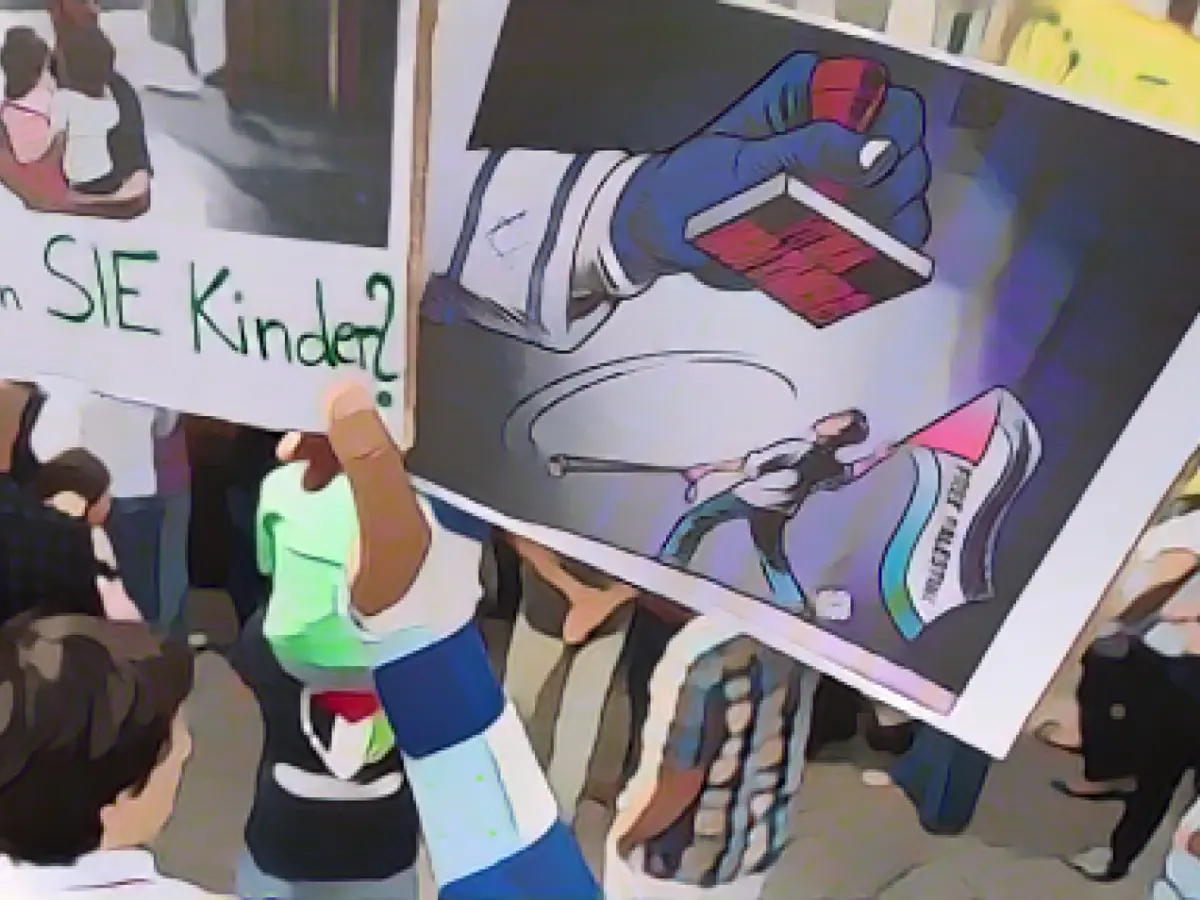Germany - Islam researcher: Worrying alliances in anti-Semitism
Islamic scholar Susanne Schröter fears that anti-Semitism will continue to grow in Germany. Three social groups are preparing the ground for this, said the director of the Frankfurt Research Center for Global Islam at Goethe University in Frankfurt: Muslim, left-wing and right-wing circles. "There are worrying opportunities for alliances. I fear that permanent synergy effects are emerging. That is quite explosive for our society."
All three groups are on the same side in their interpretation of the Middle East conflict. "There is a religiously based anti-Semitism in Islam," Schröter told the German Press Agency. This is very obvious in Islamist groups such as the Muslim Brotherhood, from which Hamas also emerged. "Hatred of Jews and the goal of destroying Israel are their founding principles." But there is also widespread anti-Semitism in the Muslim communities in Germany. "I don't believe that the majority of Muslims condemn Hamas' attack on Israel," said Schröter.
Even in academic left-wing circles, there is "an explicitly pro-Palestinian focus and strong anti-Israeli voices", said Schröter. This is fed by a post-colonial theory according to which Israel is seen as a "white perpetrator state". "This false but powerful construction can be directly linked to Islamist narratives." This attitude is also compatible with right-wing narratives, said Schröter. There had already been an alliance between the Muslim Brotherhood and the National Socialists in the 1930s. "They had a common goal: the extermination of the Jews." To this day, there are ideological "overlaps between Islamist and right-wing circles".
Read also:
- Year of climate records: extreme is the new normal
- Precautionary arrests show Islamist terror threat
- UN vote urges Israel to ceasefire
- SPD rules out budget resolution before the end of the year
- Susanne Schröter, a prominent Islam researcher based at Johann Wolfgang Goethe University of Frankfurt am Main in Germany, expresses concern about the rise of anti-Semitism within the country.
- Schröter points out the potential for dangerous alliances between Muslim, left-wing, and right-wing circles in Germany, who share similar views on the Middle East conflict.
- In Islamist groups like the Muslim Brotherhood, where Hamas originated, anti-Semitic sentiments and a desire to destroy Israel are deeply ingrained.
- Schröter's research reveals that anti-Semitic sentiments are also prevalent within the Muslim communities in Germany, and she questions whether the majority of Muslims condemn Hamas' attacks on Israel.
- In academic left-wing circles, there is a pro-Palestinian focus and strongly anti-Israeli sentiment, fueled by post-colonial theory, which can align with Islamist narratives.
- This pro-Palestinian stance is also compatible with right-wing narratives, as seen in historical alliances between the Muslim Brotherhood and the National Socialists in Germany who shared a common goal: the extermination of Jews, indicating the complexity of resolving conflicts surrounding Israel and the Palestinian territories.
Source: www.stern.de








